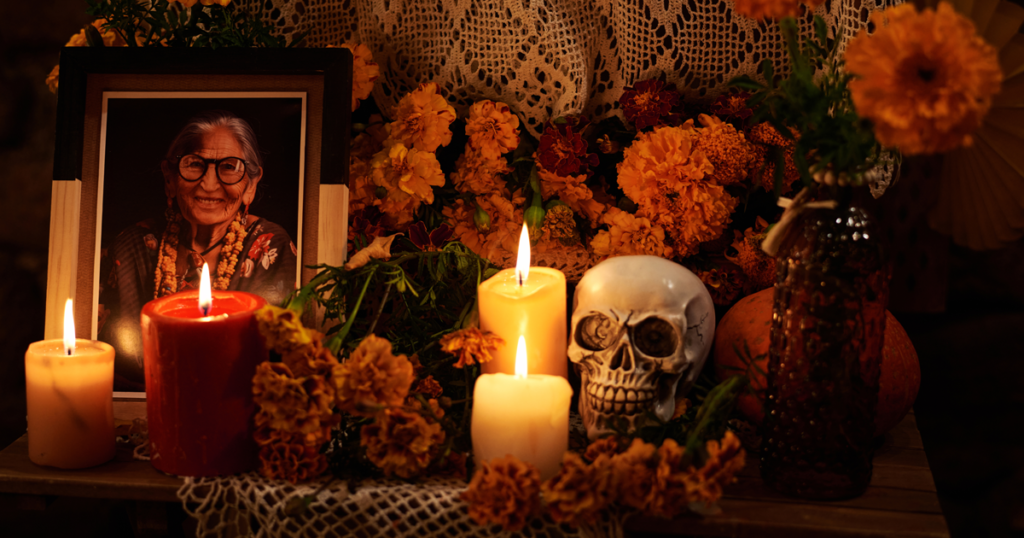Grief is a natural, yet deeply complex, emotional response to loss, and it manifests in different ways for each individual. Whether it’s the loss of a loved one, the end of a relationship, or even significant life changes, the experience of grief can feel overwhelming and isolating. At Lincoln Park Therapy Group, we understand that grief is not a one-size-fits-all process; it’s personal, it’s unpredictable, and most importantly, it’s a journey that requires time, support, and care.
The Stages of Grief
One of the most recognized models for understanding grief is the Kubler-Ross model, also known as the five stages of grief: denial, anger, bargaining, depression, and acceptance. However, it’s essential to remember that not everyone experiences these stages in a linear fashion. You might feel like you’re making progress, only to find yourself back in a stage you thought you’d moved past. This non-linear nature of grief is part of the process, and it’s important to allow yourself to feel and process each stage in your own time.
Physical and Emotional Responses to Grief
Grief affects more than just our emotional well-being; it can manifest physically as well. You might experience fatigue, headaches, a loss of appetite, or even body aches. Emotionally, feelings of sadness, anger, confusion, and even relief can surface, often unexpectedly. At times, the emotions may seem overwhelming, and it can feel like there’s no way to “fix” or escape the pain. But grief is not something to be “fixed” — it’s a reflection of the deep love or attachment we had for the person or situation we lost.
Seeking support from professionals, such as those at Lincoln Park Therapy Group, can provide a safe space for individuals to navigate their grief. Therapy offers the opportunity to express feelings, share memories, and process the complexity of emotions in a way that promotes healing.
Dealing with Death in the Home
For many, the grief process is compounded when the death occurs at home. The home can shift from being a place of comfort to a painful reminder of the loss. I was recently featured in an article on Rent. blog entitled Dealing with Death in the Home and shared insights into how the location of death can shape the grieving process. The article explores how to reclaim spaces and find a way to heal while continuing to live in the home. You can read more about my perspectives in the full article here.
In cases where death happens at home, the feelings of grief might feel more intense, as everyday sights and sounds in the house can serve as constant reminders. However, with time and the right coping strategies, it is possible to begin creating new memories and associations with your space. Engaging in therapeutic practices like mindfulness, memory work, and rituals of remembrance can help transform a place of sadness into one that honors and celebrates the life that was lived.

Cultural Practices and Grief
Different cultures around the world have developed unique practices to cope with grief and honor the dead. One of the most well-known is the Mexican tradition of Día de Los Muertos (Day of the Dead). Celebrated on November 1st and 2nd, this holiday is a vibrant and joyous occasion where families come together to honor and celebrate the lives of their deceased loved ones. Rather than focusing on loss and sadness, Día de Los Muertos emphasizes the belief that death is a natural part of the cycle of life. Families create “ofrendas” (altars) adorned with photos, favorite foods, and mementos of the departed, and they gather in cemeteries to share stories and remember those who have passed.
This celebration offers a different perspective on grief, one that allows for mourning while also celebrating the joy and impact the person had during their life. It serves as a reminder that while the pain of loss is real, so too is the legacy of love and memory that remains.
In contrast, other cultures may approach grief with solemn rituals or extended mourning periods. For example, in Jewish tradition, the process of sitting shiva is an important mourning period lasting seven days after the funeral. This time allows family members to grieve intensely, supported by their community, before gradually re-entering their everyday lives.
Understanding these diverse cultural practices reminds us that grief, though deeply personal, is also a universal human experience. Many cultures have long-established rituals to support those in mourning, and learning about them can provide comfort or new ways to honor our own losses.
Moving Forward with Compassion
Grieving is a journey that no one should have to take alone. At Lincoln Park Therapy Group, we are here to walk with you through the pain, helping you navigate the complexities of your emotions and find a path toward healing. Remember, it’s okay to seek help, to take your time, and to grieve in the way that feels right for you. If you need support, consider scheduling a time to come in and talk with one of our therapists. Grief may change you, but with support and compassion, you can emerge from it with a renewed sense of strength and resilience.
Additional Resources That Can Be Helpful in Dealing With Grief
5 Tips For Daily Management of Stress and Anxiety – Here are 5 simple things you can do on a daily basis to help manage and minimize your stress and anxiety, no matter what’s going on in your life.
Nurturing Mental and Emotional Health Beyond May: Strategies for Well-Being – Taking care of our mental health not only enhances our physical and emotional well-being but also strengthens our resilience and equips us to manage life’s stresses in healthier ways.
Supporting a Grieving Person: Thoughtful Ways to Be There – Grief will always be a part of life, just as loss is. Maybe we can try to make it a little easier for one another through thoughtfulness and intentionality.

 Nicolle Osequeda, LMFT, is the founder of Lincoln Park Therapy Group, specializing in anxiety, depression, and relationship counseling in Chicago. As a Certified Daring Way™ Facilitator, she incorporates Dr. Brené Brown’s research into her therapy. Nicolle holds a Master’s in Counseling Psychology from the University of San Francisco and is a Licensed Marriage & Family Therapist in Illinois and California. She is a Clinical Fellow of AAMFT, a member of IAMFT, and the Financial Therapy Association. Nicolle has Gottman Method training and has taught at DePaul University, dedicated to helping individuals and couples achieve meaningful change.
Nicolle Osequeda, LMFT, is the founder of Lincoln Park Therapy Group, specializing in anxiety, depression, and relationship counseling in Chicago. As a Certified Daring Way™ Facilitator, she incorporates Dr. Brené Brown’s research into her therapy. Nicolle holds a Master’s in Counseling Psychology from the University of San Francisco and is a Licensed Marriage & Family Therapist in Illinois and California. She is a Clinical Fellow of AAMFT, a member of IAMFT, and the Financial Therapy Association. Nicolle has Gottman Method training and has taught at DePaul University, dedicated to helping individuals and couples achieve meaningful change. 

